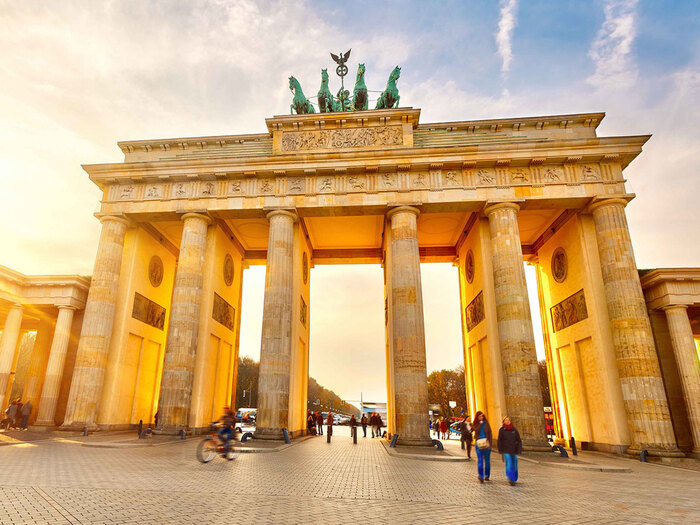Dear readers,
Whether the President of the United States is really the "most powerful man in the world," as it is always said, is open to doubt.
On Wednesday, however, it became clear that there was some truth in the wording: A few lines from Joe Biden, packaged as an "executive order", were enough to lead the second largest driver of the climate crisis back into the Paris Agreement.
The importance of this step can hardly be overestimated, because meeting the global climate targets would have become almost impossible without a corresponding contribution from the USA.
One of the probably most important steps for successful climate protection in this decade has been taken.
But where we will be in 2030 or even 2050 has not been clarified.
And that depends not only on the question of how much of the promises Biden and the other heads of state actually implement, but also on the announcements themselves.
If Biden is serious, he is setting the course for the USA to stop emitting “net” emissions by 2050.
The EU, China and many other countries have announced something similar.
But “net zero” emissions don't mean nothing.
As the pressure to rapidly decarbonise industries, agriculture and mobility increases, the focus is again on the possibilities of not having to do this just by avoiding CO2.
In addition, not all greenhouse gases can be prevented in the traditional way.
In the years to come, mankind will be allowed to dispose of a maximum of 400 billion tons of CO₂ in the atmosphere in order not to heat the earth by more than 1.5 degrees Celsius compared to pre-industrial times.
Today around 37 billion tons of carbon dioxide are released into the atmosphere worldwide every year.
That would use up the budget in ten years.
So states and companies are increasingly looking for ways to offset emissions or stop their path into the atmosphere, for example by storing them underground, known as “Carbon Capture and Storage” (CCS) (read more about the projects in Europe here).
Theoretically, there are many ideas on how CO₂ can be captured in order to make processes climate-neutral or even how "negative emissions" can be achieved.
They range from the reforestation of forests to complex technical solutions with which CO₂ can be extracted from the air.
Most approaches have three main problems
It is unclear whether they are suitable for permanently securing greenhouse gases.
Leaking underground CO2 repositories would release stored carbon dioxide back into the atmosphere and the climate benefit would be lost.
And how quickly forests can go up in flames can be seen in the past year - of course, this fate can also overtake trees specially created for CO2 storage.
How exactly the climate contribution of CO2 compensation projects is determined has not yet been regulated in a uniform manner, so the risk of fine arithmetic is high
The costs per ton of greenhouse gas saved are extremely high in many approaches.
With prices of up to 500 euros and more, they are not (yet) economically viable
Climate activists have long feared that technical approaches could be used primarily as an excuse to invest less effort in the energy transition and the decarbonisation of the economy and to be able to use fossil fuels a little longer.
A particularly striking example comes from the USA.
The company "Occidental Petroleum" wants to install a CO2 filter system on America's largest oil field - in order to be able to produce more oil.
CO₂ trapped from the air is to be injected underground in old oil deposits, but the process is also to be used initially to bring oil that is difficult to tap to the surface more easily.
In other words: a system upstairs filters climate gas from the air, this is then pumped underground in order to get even more climate-damaging oil, which in turn releases climate gas when burned.
The plant is scheduled to go into operation in 2023 and capture up to one million tons of CO₂ per year.
Icon: enlarge
Modeling of a CO2 filter system from Carbon Engineering
Photo: Carbon Engineering / youtube
Projects like this one are bad for the image of technical air conditioning solutions, as they confirm clichés about the fossil energy industry.
That would be bearable if it wasn't already clear today that we will urgently need the technology for climate protection.
Many greenhouse gases - be it in the steel industry, agriculture or air traffic - cannot be avoided completely or cannot be avoided quickly enough in order to achieve the climate targets, and storage facilities for these emissions will very likely have to be found.
In its report on how the 1.5-degree target can be achieved, the Intergovernmental Panel on Climate Change (IPCC) also assigned CCS a fundamental role: by 2100, around 700 billion tons of CO₂ are to be stored - that is more than all countries are currently in 15 years.
As early as 2015, a study came to the conclusion that negative emissions would even be needed if global warming was to be limited to below two degrees.
In a study in May, Oliver Geden and Felix Schenuit from the Science and Politics Foundation wrote that conventional climate protection measures to avoid emissions, such as renewable energies or energy efficiency, are not enough for net zero.
In order to compensate for unavoidable residual emissions, unconventional measures would also have to be used to remove CO₂ from the atmosphere - "in the amount of several hundred million tons per year".
For comparison: Germany emitted a good 800 million tons of greenhouse gases in 2019.
Last week, Professor Stuart Haszeldine from the University of Edinburgh made it even clearer to the Observer: “If we want any chance of stabilizing global warming below two degrees, we urgently need to find ways of capturing CO₂ and storing it underground . "
Even if it is still unclear whether and to what extent this can succeed, there is probably no way around "negative emissions" if we take the Paris resolutions seriously.
This also means that when it comes to climate promises like Joe Biden's, but also similar announcements by companies, it will be necessary to take a much closer look at which technologies they are taking into account.
If you like, I will inform you once a week about the most important things about the climate crisis - stories, research results and the latest developments on the biggest topic of our time. You
can
subscribe to the newsletter here
.
The topics of the week
New US President: How Biden Wants to Make the US a Climate Champion
Under US President Biden, the US should go through a radical green change in a few years.
But how realistic is that in a country of passionate SUV drivers and fracking fans?
Luisa Neubauer in the top SPIEGEL talk: "In the shadow of Corona, climate destruction is being promoted"
Climate protection, was there something?
The corona pandemic is displacing another major crisis of our time.
“Fridays for Future” activist Luisa Neubauer says what politics failed to do in crisis mode.
Infrastructure: starting shot for Germany's hydrogen network
Green hydrogen should save the climate and create a new billion-dollar market.
Only: How it is transported was previously unclear.
According to SPIEGEL information, the government now has a plan.
Energy transition: wind farms in the North Sea produce more electricity than ever before
The electricity production of wind turbines in the North Sea rose rapidly in the past year.
The expectations of the federal government have been exceeded.
Nord Stream 2: Climate protectors oppose Schwesig
A foundation for climate protection is supposed to bypass the Nord Stream 2 sanctions.
Environmental groups are rebelling against Manuela Schwesig's plan.
Now the chairwoman of Schwesig's Climate Council is also stepping down.
US fracking vs. Nord Stream 2: which is more damaging to the climate: pipeline or liquefied gas?
With Nord Stream 2, even more gas is coming from Russia via the Baltic Sea, and tankers with liquid gas will soon be docking in Lower Saxony.
The imports are supposedly a contribution to climate protection.
But is that true?
Ex-ministers Künast and Schmidt in a double interview: Do we have too many animals in the country?
He is from the CSU, she is from the Greens - and both consider major changes in agricultural policy to be inevitable: Christian Schmidt and Renate Künast argue about the future of agriculture.
Study on emissions: how harmful to the climate can basic research be?
A huge neutrino observatory is to be built in China.
Ecological impacts are discussed even before construction begins.
The example shows that the climate crisis has hit astronomers.
Warmed up
If Prime Minister Scott Morrison has his way, coal will be important for Australia's prosperity for "decades"
("The Sydney Morning Herald")
For the head of the European Investment Bank, the days of gas as an energy source are over.
"To put it cautiously: Gas is over," said Werner Hoyer ("Euractiv")
By the end of the decade, Europe must double the installed wind energy capacity in order to meet the climate targets
(»Bloomberg«)
Despite the promise of climate neutrality, coal production in China has reached its highest level since 2015
(»Reuters«)
glossary
Term of the week: Feedback effects - when one thing leads to another
Climate change affects countless areas of the Earth system.
These can influence each other and strengthen or weaken the effects that occur.
How do feedback effects work?
Stay confident
Your Kurt Stukenberg















